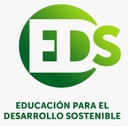Executive Secretary

Simposio Internacional Educación para el desarrollo sostenible (EDS) 2021
Desde una experiencia en el del uso de las Tecnologías de la Información y las Comunicaciones. Se detecta el problema de cómo usar las tecnologías para el desarrollo del proceso de enseñanza-aprendizaje del Álgebra en la formación de profesores de matemática y se propone una concepción didáctica de utilización de las tecnologías para el desarrollo del proceso de enseñanza-aprendizaje del Álgebra contribuyendo a la formación inicial de profesores de Matemática. Dentro de los métodos empíricos utilizados: análisis de documentos, observación participante, entrevista, encuesta y el criterio de expertos. Dentro de los teóricos: histórico-lógico, analítico–sintético e inductivo–deductivo, así como métodos del nivel estadístico y/o procesamiento matemático. A partir de la sistematización en la solución de tareas docentes con sistemas inteligentes, Geogebra, aplicaciones móviles, entre otros software y atendiendo a sus carencias y potencialidades. Se hace referencia a las consideraciones teóricas en la experiencia y una valoración del cumplimiento de los fines propuestos. La esencia es la interrelación entre las carencias y potencialidades de los recursos y software a utilizar, habilidades informáticas a tener con el uso de las tecnologías para proceso de enseñanza aprendizaje del Álgebra, los objetivos a alcanzar y la didáctica de la Matemática como eje central para su uso.
From an experience in the use of Information and Communication Technologies. The problem of how to use technologies for the development of the teaching-learning process of Algebra in the training of mathematics teachers is detected and is propose a didactic conception of the use of technologies for the development of the teaching-learning process of Algebra, contributing to the initial training of teachers of Mathematics. Within the empirical methods used: document analysis, participant observation, interview, survey and the criteria of experts. Within the theoretical: historical-logical, analytical-synthetic and inductive-deductive, as well as methods of the statistical level and / or mathematical processing. From the systematization in the solution of teaching tasks with intelligent systems, Geogebra, mobile applications, among other software and attending to their shortcomings and potentialities. Reference is made to the theoretical considerations in the experience and an assessment of the fulfillment of the proposed purposes. The essence is the interrelation between the deficiencies and potentialities of the resources and software to be used, computer skills to have with the use of technologies for the teachinglearning process of Algebra, the objectives to be achieved and the didactics of Mathematics as the central axis for its use.
Sobre el ponente

Dr. Jorge Luis Contreras Vidal







